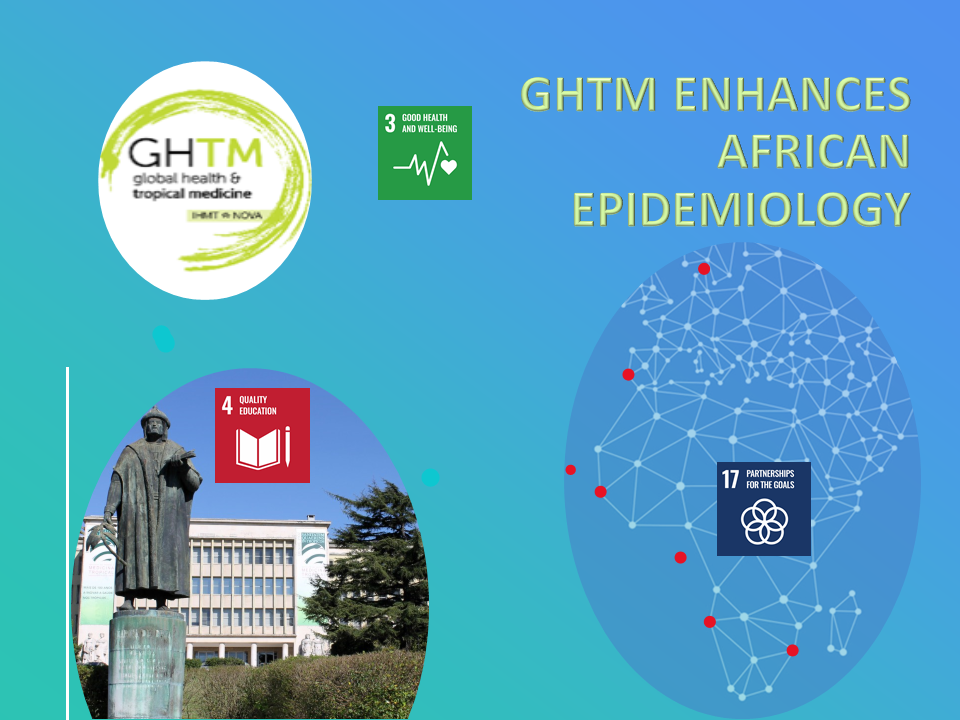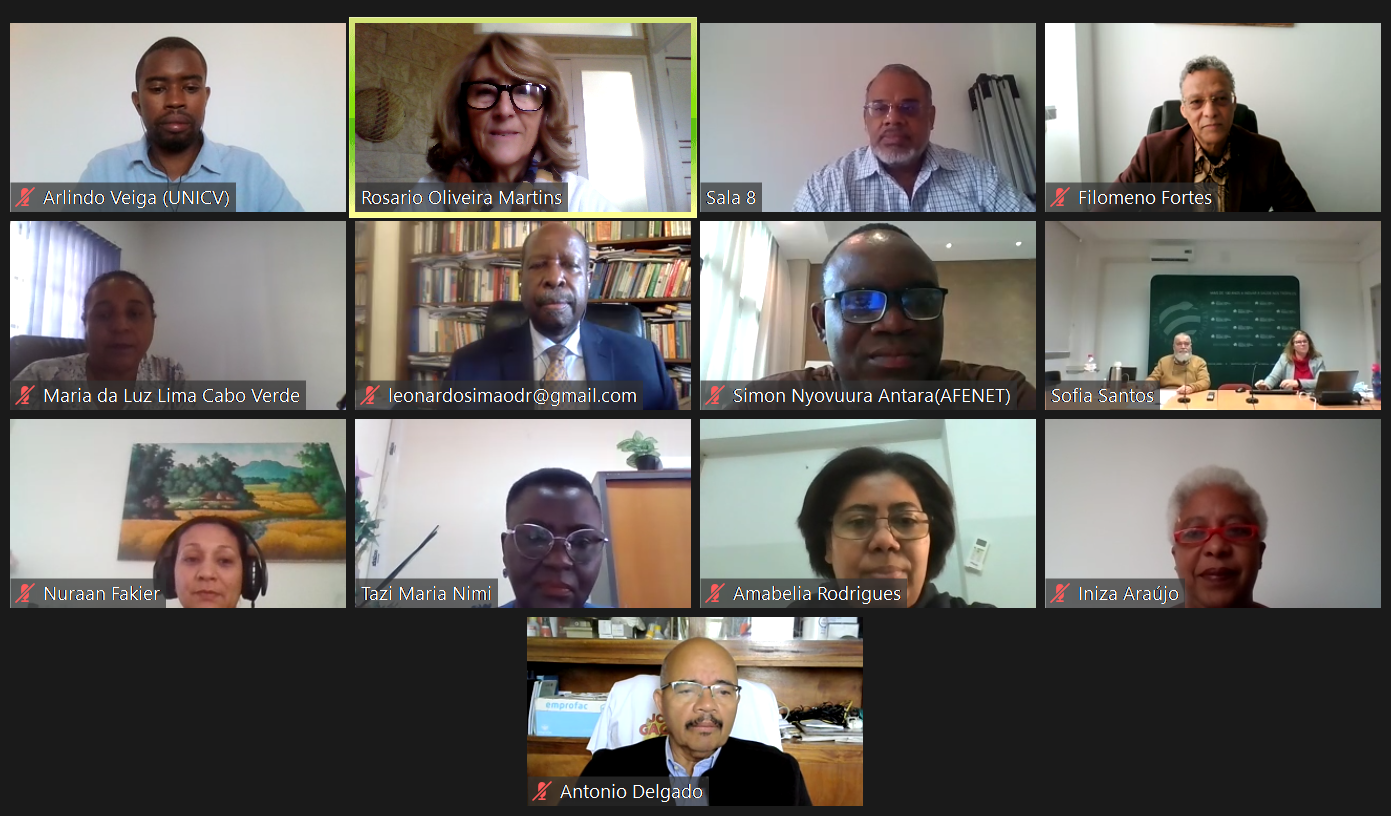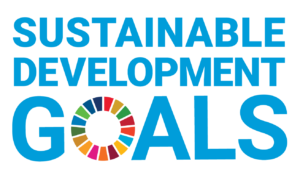Public Health Policies are fundamental for any country, not only for the obvious reasons of its population health and well-being, but also for its development, be it social, economic, scientific, cultural, ecological – the concept of Global Health naturally emerges. Nevertheless, just to have nice policies doesn’t solve problems, especially if the country is plagued with recurrent infectious diseases or under an epidemic. They need to be implemented society-wide and, to do it properly, there is the need for scientifically skilled health personnel in the appropriate fields.
All over the world, countries need to ensure the availability of public health staff, but, for African countries, in general, that has remained a daunting problem for decades.
Sub-Saharan Africa, besides the continuous problems of endemic parasitic diseases, like malaria or filariasis, has endured several Ebola outbreaks and now the COVID-19 pandemic. In all cases, the severe shortages of the public health workforce or of infrastructures were crystal-clear. Moreover, the inadequate capabilities to deal with public health emergencies or to do research. These issues are known for a long time, as are the limitations to obtain reliable epidemiological data, unavailable most of the times due to resource-limited settings.
The NOVA’s Institute of Hygiene and Tropical Medicine has been at the cooperation forefront with Africa, in terms of health professionals’ training, for almost 120 years. Hence, all its staff is, necessarily, quite aware of those aforesaid needs, and, since its foundation, most of the GHTM R&D Centre’s projects are focused on those problems.
The inception of the SARS-CoV-2, and the pandemic expansion of the disease it causes, exposed those issues to a much wider public. Even more so with the realisation that having an entire continent with very low epidemiological data coverage is a threat to all others, despite of vaccination rates or travel restrictions. Hence, this crisis pushed more institutions to propose and finance initiatives, like develop the local healthcare workforce, to tackle Africa’s health needs.
On 4 March 2021, the European and Developing Countries Clinical Trials Partnership (EDCTP), the Africa Centres for Disease Control and Prevention (Africa CDC) and the African Union announced in Addis Ababa, Ethiopia, a new training programme, funded by the EDCTP and the Africa CDC, to support the training of 150 highly skilled epidemiologists and biostatisticians in sub-Saharan Africa, over a period of three years.
The training scheme has to be run by institutions from Africa and Europe, organised in ten consortiums, each one responsible for a maximum of 15 post-graduate students. When completed, it should enhance the capabilities of African Ministries of Health, National Public Health Institutes (NPHI), or other local health institutions, to collectively perform routine surveillance, conduct public health investigations and efficiently answer to health emergencies across the continent.
The call – opened between 09 April and 30 July 2020, with a €5 million budget – was themed:
«Capacity development for disease outbreak and epidemic response in sub-Saharan Africa, in collaboration with Africa CDC».
GHTM | IHMT | NOVA’s researchers saw an opportunity to set up a project that could continue beyond that three years’ programme, creating sustainable local capabilities and establishing long-term partnerships between academia and NPHIs for continued training of epidemiologists. They organised a consortium, under the institutional coordination of NOVA University, Lisbon, Portugal, with institutions among their network throughout Europe and Africa:
- Denmark, University of Southern Denmark;
- Angola’s NPHI and Agostinho Neto University;
- Cape Verde’s NPHI and University of Cape Verde (UniCV);
- Guinea-Bissau’s NPHI;
- Mozambique’s NPHI, Eduardo Mondlane University, and Manhiça Foundation;
- São Tomé and Príncipe’s NPHI.
The Project Coordinator, which lectures at Eduardo Mondlane University, is GHTM’s Professor Mohsin Sidat, from Mozambique.
In what is a true trans-continental cooperative endeavour – fulfilling the «17th Sustainable Development Goal: Partnerships for the Goals» – five African National Public Health Institutes, five Academic Institutions – 3 African and 2 European – and five research centres – 3 African and 2 European, including yours truly GHTM – come together to conceive, organise and launch the
«Master in Field Epidemiology Training for Portuguese-speaking West African Countries»,
at the University of Cape Verde, building on the field epidemiology training track record of Angola and Mozambique.
The plan has five working areas
- Management of the Consortium, chaired by NOVA-IHMT with the help of the participating institutions’ Principal Investigators;
- Adaptation of the course’s subjects and structure to the West African context and the requirements for the program’s registration with the UniCV, led by Profs. Sidat and António Pedro Delgado (UniCV);
- University Based Academic Training, co-chaired by UniCV and NOVA-IHMT;
- Site-based Field Training, co-chaired by NPHI from Cape Verde and Guinea-Bissau;
- Networking, dissemination and future planning, co-chaired by the NPHIs of Angola and São Tomé and Príncipe.
To ensure that the field epidemiology training program (FETP) MSc will be integrated into a sustainable academic offer from UniCV, that will remain for future generations of West African students, or others, the course’s adjustments and developments will be monitored throughout its duration. With the master’s programme completion, there will be the establishment of a support and follow-up structure, including an alumni network, which could serve as a basis for a cohort of epidemiologists across Portuguese Speaking African Countries.
The entire project will last for 36 months, starting with the official inaugural meeting, held from 9 to 13 December 2021, in long-distance virtual format, of the FETP Master’s 1st edition.
The taught course’s modules will start in April 2022 and the whole MSc program will last for 24 months, full time. There will be 15 students from the National Health Services (NHS) of three West African countries: Cape Verde, Guinea-Bissau and São Tomé and Príncipe.
The candidates, selected by the NHS services, particularly by the National Institutes of Public Health, must be citizens of those countries and need to have degrees in health, exact, natural, human or social sciences, with interest and experience in the area of Public Health, Epidemiology or Bio-statistics. The deadline for submitting the list of candidates will be 15 February 2022.
The students will be placed in internship locations appropriately selected among their respective home countries’ health system facilities, where they will apply their theoretical knowledge and learn by doing – e.g. action learning. It is expected that practical training in the nations of origin, complemented by online theoretical one, will promote staff integration and retention in those developing countries, particularly in their NHS.
This initiative is another example of how GHTM contributes to the development of health systems – 3rd SDG – and education – 4th SDG – in Africa, fulfilling its Vision Statement:


